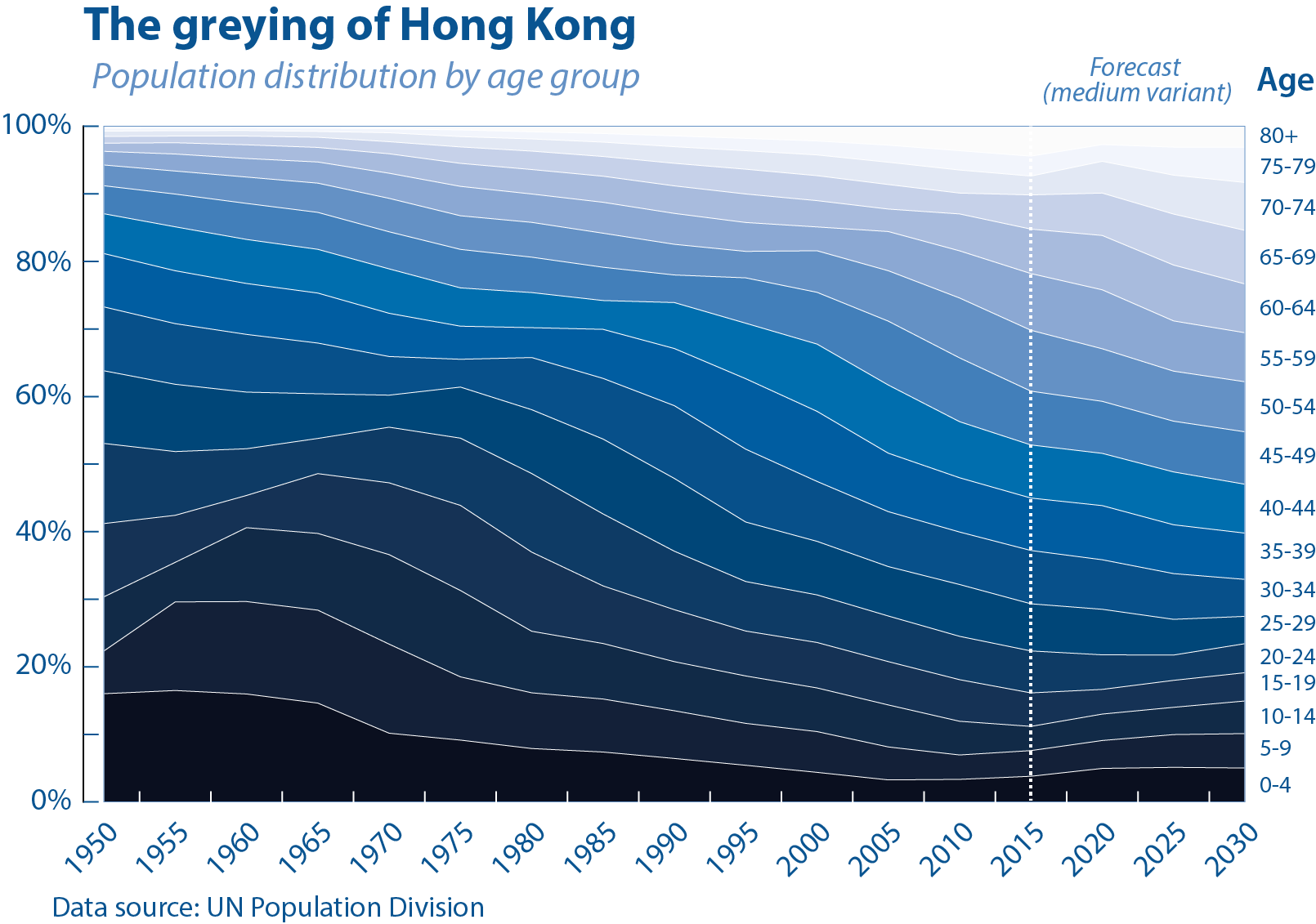You are here
Home ›Vocational Education in Hong Kong: Intensifying labour shortages spur demand for innovative approaches
Primary tabs

Hong Kong is experiencing labour shortages across a wide range of industries due to a falling youth population and negative perceptions of vocational education. These pressures have sparked renewed government efforts to rebrand Vocational and Professional Education and Training (VPET), with growing opportunities for foreign institutions to provide solutions.
According to the Construction Industry Council (CIC), there is an immediate shortage of skilled workers in the construction industry, with an additional 10,000 – 15,000 required over the next four years. Part of the issue is a rapidly aging workforce, with more than 40 percent of construction workers aged 50 or over. According to some reports retaining young trainees in the industry at the conclusion of their training is problematic. The lack of a strong apprenticeship model has also been an issue, although the Vocational Training Council’s (VTC) apprenticeship training schemes seek to address this. The MTR corporation have also set up apprenticeship schemes.
A report published by the Food and Health Bureau in 2017 forecasts a shortage of workers across a number of healthcare professions such as nursing (1,700), and physiotherapy (around 1,000) by 2030. According to the Labour and Welfare minister, there is already a shortage of subsidised nursing home staff of around 18 percent. This trend may worsen, as an aging population increases the need for healthcare services. According to the 2016 population census the proportion of 65 or older has reached 16 percent, while the proportion of under-14s has shrunk from 14 percent in 2006 to currently 11 percent.

A column in the South China Morning Post by Carrie Yau, Executive Director of the VTC outlines priority issues in providing vocational and professional education in order to meet Hong Kong’s labour needs:
- Changing perceptions of vocational education being “blue-collar” workers, hence the VTC rebranding vocational and technical training as “vocational and professional education and training”. According to Yau the difference is training soft skills in addition to technical skills.
- Articulation and permeability in vocational and professional education. Yau suggests that the Hong Kong system is similar to German and Swiss models, in which vocational graduates can also progress to academic higher education.
- Dual track vocational education, in which students can enrol in the VTC’s “Earn and Learn” scheme, where they study while working by integrating classroom learning with on the job training.
- Use of new technology
- Interdisciplinary learning
A recent poll by a policy think tank Bauhinia Foundation suggests that the perception of vocational education remains a significant hurdle. In the study four out of five respondents did not recognise vocational education as a professional qualification for students. The study also cited a lack of understanding of pathways from vocational education.
In terms of meeting Hong Kong’s labour needs, the Bauhinia study also suggests that there is a mismatch between job requirements and qualifications – i.e. that there is an over-supply of university graduates, which is a result of parents’ beliefs that a university degree is essential for a prosperous future. According to the survey report this is backed up by census data, which suggests that 45 percent of tertiary education graduates work in administrative or assistant level jobs.
Recommendations from the Bauhinia report include exposing students to “job tasting” programmes at a younger age, extending applied learning in secondary education, increasing credit recognition between academic and career-oriented education, and expanding recognition of prior learning.
Relevance to the UK Sector
The VTC is seeking to learn from other countries’ approaches to vocational education, including the UK. In particular degree apprenticeships have been a topic of interest.
In order to make VPET more attractive to students and improve the image of vocational education as a professional career path, the VTC has also been keen to offer international exposure to apprenticeship students. To this aim, a group of apprentices spent three weeks at a UK Further Education college in August 2017 on short term study exchange, an arrangement that looks set to continue and expand to more subject areas. The VTC are also open to receiving ideas on other ways to provide international exposure to apprentices, and UK institutions are welcome to share any relevant experiences with other countries via the British Council for VTC’s consideration.
There are also implications for the UK higher education sector in terms of graduate employability of Hong Kong students. As covered above there is a qualifications mismatch with the graduate employment market, meaning there is a danger that some graduates may not enter the type of job roles that they would expect with a university degree. Parent and student decision making research conducted in 2016 suggested that employability is becoming an increasingly important decision making factor, and students are increasingly looking for career related skills training and industry placements.
Further Education colleges looking to recruit students in Hong Kong need to be aware that the lack of understanding of pathways from vocational institutions may extend to FE colleges, making recruitment challenging. FE Colleges also need to very clearly articulate industry links and benefit in regards to employability in order to recruit students from Hong Kong.






Add new comment
Please note that comments by non-members are moderated. They do not appear on the site until they have been approved. Comments by registered members appear here immediately. Your email address will not be published. All fields are required.